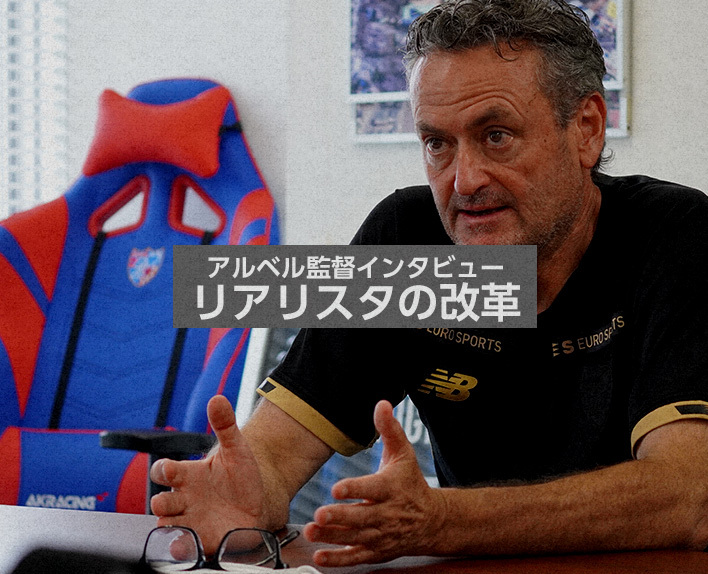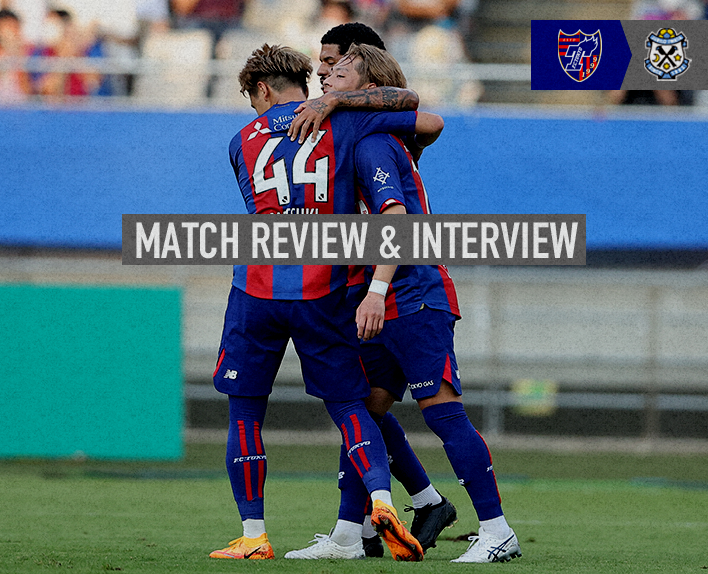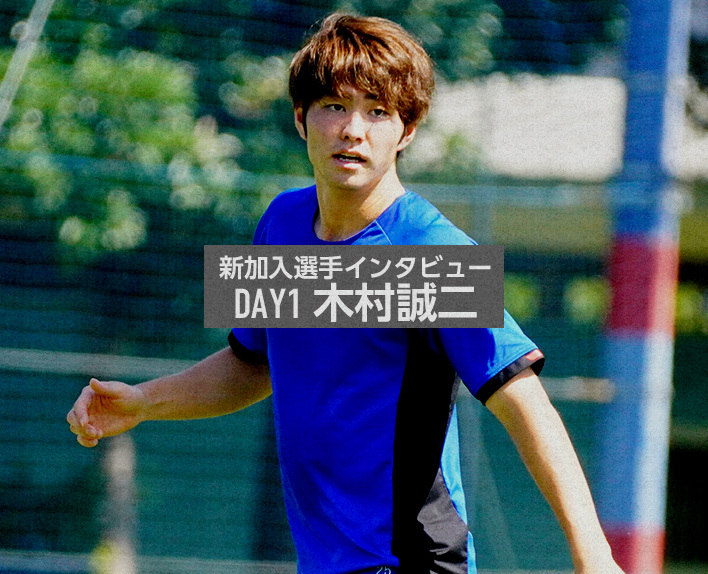With the appointment of coach Albert PUIG ORTONEDA, the 2022 season aimed at building a new playing style is now down to the final third. What kind of growth has the team achieved so far? We welcomed sports writer Atsushi Iio, who conducted an interview with coach Albert PUIG ORTONEDA before the season started, to ask the coach about the team's current status.
Q: The match against Hokkaido Consadole Sapporo on July 6 was a test match for vocal support operations. It was the first time since the opening match of the 2020 season when Albert PUIG ORTONEDA was leading Albirex Niigata that he heard cheers and chants in Japan. How did you feel about the singing voices of the fans and supporters?
I believe the atmosphere that a stadium should have has returned. Over the past two years, there were times when matches were played without spectators. Even when fans and supporters started filling the stands, they were in a situation where they couldn't make any noise. I think everyone felt frustrated, but it was tough for us too. What I want to convey to those who cheered on that day at Ajinomoto Stadium is that both "You'll Never Walk Alone" and the call for "Albert PUIG ORTONEDA" were properly heard. Your cheers were a great support, and we were able to have a wonderful match. At the same time, I could also hear the fans and supporters from Sapporo continuing to cheer until the end. I would like to thank the fans and supporters of both teams for creating such a wonderful atmosphere.
Q. By the way, how does Coach Albert see himself, as a romanticist or a realist? Which type of coach does he think he is?
A, suddenly, what's wrong? (laughs). I think of myself as a realist.
Q: What reasons do you have for thinking that way?
A, Romantistais something that ends with just dreaming. However, I am always facing reality in order to incorporate my ideal soccer into the team. In recent years, with the spread of the internet and the advancement of technology, soccer analysis has progressed dramatically, but on the other hand, I feel that the elements that soccer originally possesses are being lost. For example, there is an abundance of tactical analysis of soccer on the internet. There are opinions that winning a match is a victory of tactics, and losing a match means the tactics are bad, but soccer is not that simple. A team is a group of living human beings. Each has strengths and weaknesses, and sometimes they have problems off the pitch. The coach must skillfully bring together such real human beings. Therefore, while I have ideals, I am always facing reality.
Q, the reason is that in the first 10 matches of the season, there were many direct plays, and the style from last season was still very evident. While earning points this way, we gradually aim to instill the desired playing style, allowing us to embody 'football that loves the ball.' I felt a sense of skill in this approach.
A, what I first felt when I came to this club was that there were few mid-career players in their late 20s, and the team was composed mostly of young players and veterans. Furthermore, at the beginning of the season, we were also troubled by the new coronavirus. In such a situation, if I had clung to my ideals, what would have happened? We might have been fighting to avoid relegation by now. This season, what I need to do is to gradually acclimate the team to a new playing style while building a foundation, and at the same time, give opportunities to young players and gradually rejuvenate the team. I think you can understand that things are changing little by little when you compare the possession rates of the last few years with this season.
Q, while building a foundation, we also give opportunities to young players and earn as many points as possible. I believe that the matches against Shimizu S-Pulse on May 25 and Kashima Antlers on May 29 were where we could embody the style of football that Coach Albert PUIG ORTONEDA aims for, especially the match against Kashima, which I think was a game that set the standard.
A, I think we played well in those two matches. Also, the first halves of the Emperor's Cup match against V-Varen Nagasaki on June 22 and the match against Sagan Tosu on June 26 were not bad. We can say that the team has progressed to the next phase. However, as we have become able to retain possession of the ball, technical mistakes have become more noticeable, and we are facing more opportunities for counterattacks. This is a new challenge that comes from our growth. To control the ball more calmly, provide appropriate support, and aim for the opponent's goal at the right timing, we still need time.
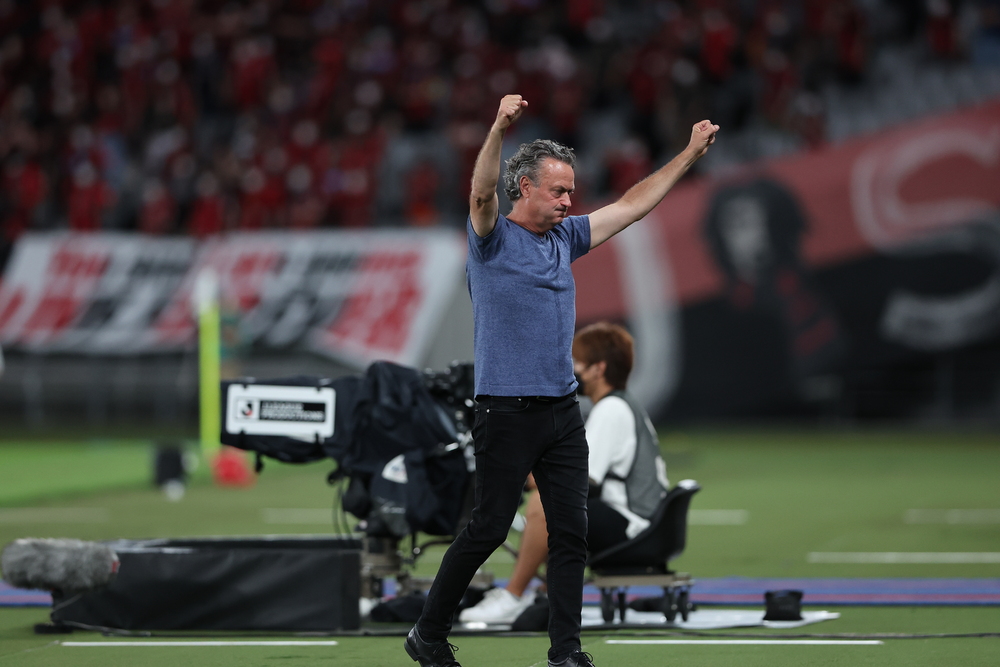
Q: You mentioned that when building a style, you have to take two steps forward and one step back.
Moreover, injuries are continuing to occur. When this many players are injured, there are limits to what the coach can do. Due to Henrique TREVISAN's absence, we are in a situation where Morishige (Masato) and Yasuki KIMOTO must continue to play as center-backs. Nakamura (Hotaka), Takuya AOKI, and Shuto ABE are also injured, and Adailton and Diego OLIVEIRA are playing while dealing with pain. Given the state of the team, we had to place 18 and 19-year-old players at the center of the team.
Q, it's Kuryu MATSUKI and Yuki KAJIURA.
A, if there had been no pass mistake by Kajiura in the match against Urawa on July 10 and the halftime score was 0-0, the subsequent course of the game would have been completely different. It may sound harsh, but that conceded goal had a significant impact on the flow of the match. It was a painful goal for the team, but I believe Kajiura himself gained very valuable experience. Such experience can only be gained by actually playing in matches. However, I repeat, we have been working on a new playing style for half a year now and are still in the process of building the foundation. Even at Albirex Niigata, where I was in charge, we struggled in the first year, but by the second year, a clear playing style was established and we were able to achieve results. Yokohama F.Marinos, who won the 2019 season, were also in their second year under a new manager. Manchester City's Josep Guardiola had no trophies in his first year but made significant investments in the second year and achieved a double. The same goes for Liverpool's Jürgen Klopp.
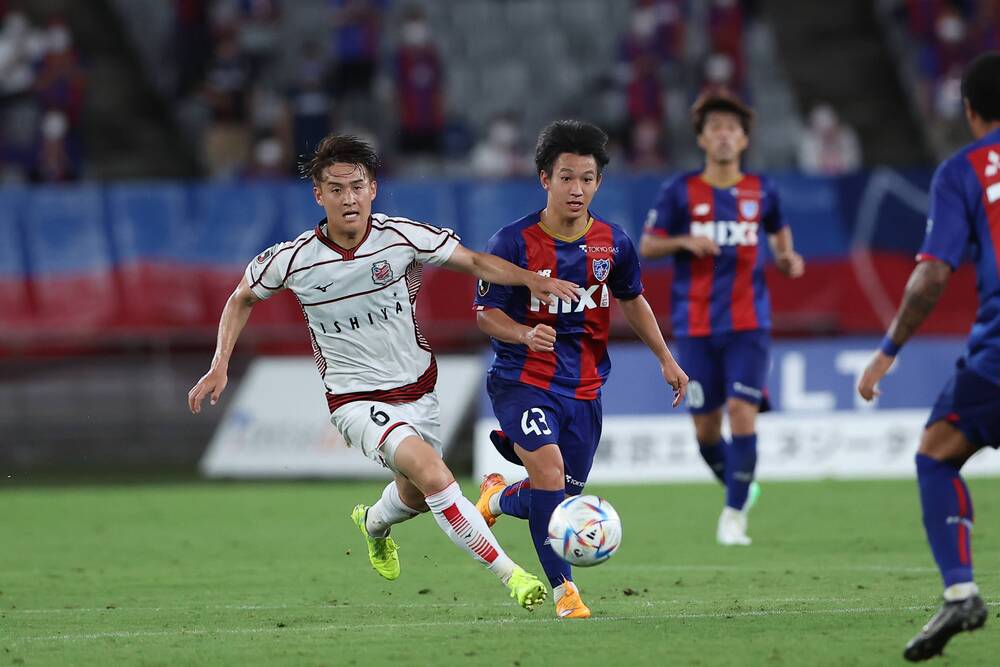
Q: Klopp won his first title with Liverpool in his fourth season.
A, I don't know if I will be given that much time (laughs), but I want to build a team that can aim for the title step by step. The coach is not a magician. Of course, I will accept criticism when we lose, but the club has just begun its reforms. I hope you can understand that.
Q: One of the highlights of the first half of the season has been the performance of Ryoma WATANABE. He has played as a right back, right inside half, and right winger, fulfilling the required roles effectively. What does coach Albert PUIG ORTONEDA think about his play and abilities?
A, Ryo is one of the players I am looking for. His main position is MF, but he can also play like a winger at times and like a full-back at other times. There is still room for improvement in ball retention, but he is doing very well. In matches, he must adapt to various flows. Leandro is also like this; versatile players broaden the options for tactics and strategies, making them valuable assets.
Q, additionally, I am particularly interested in Yuto NAGATOMO and Keigo HIGASHI. NAGATOMO joined the team late due to national team duties and missed opportunities at the beginning of the season, but he has secured the right back position. HIGASHI spent time warming the bench, but he seized the opportunity that came his way while playing in a position that is not his primary role as an anchor. Amidst the generational shift, I feel that we have witnessed the strength of veterans who prepare and bounce back without losing heart.
A, Nagatomo is one of the few Japanese players who has continued to play for great clubs in Europe. The reason he has been able to compete at that level is because he has a competitive spirit. He is eager to learn and always gives 100 percent in practice. Last year, he faced criticism regarding his play for the Japan national team, but he overcame it with a strong mentality and hard work. I recognize that players with a mentality like his are great players. Young players in Japan should learn a lot from Nagatomo. Keigo also possesses a strong mentality and has excellent skills. As you said, he has overcome difficult situations and is now playing as an anchor. It feels as if he has been playing in this position all along. I believe it is a suitable position for him.
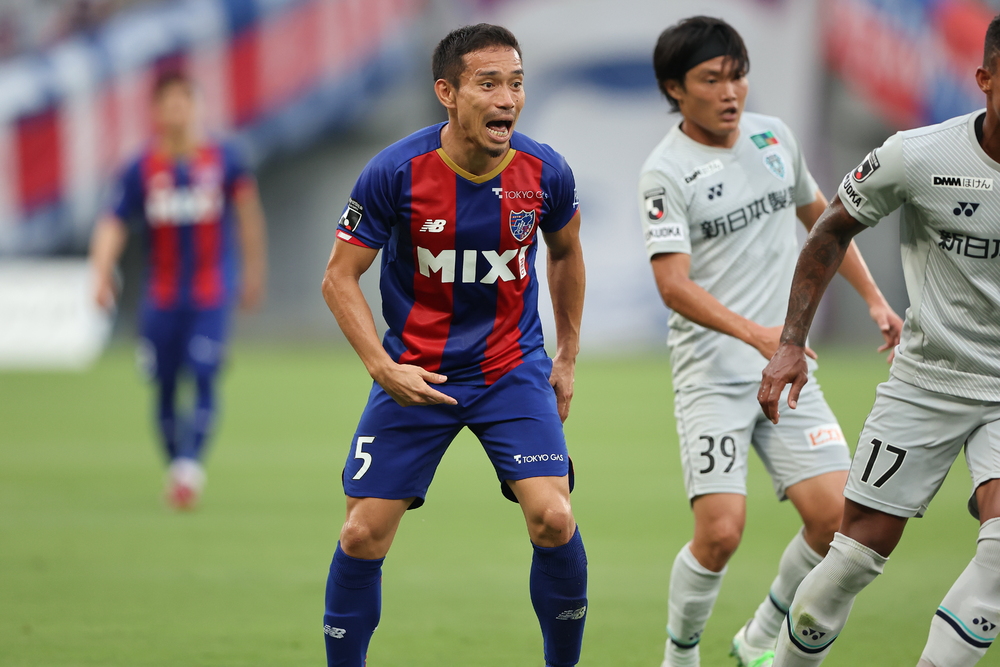
Q, on the other hand, Abe and Matsuki are mainly used as inside halves. I think they are players who rely more on intensity than creativity. Is intensity more important for the inside half image that Coach Albert PUIG ORTONEDA is looking for?
Even if I instructed A to "play like Iniesta," it doesn't mean he can become Iniesta. As a realist, I want to first utilize the strengths of the players in front of me. Of course, I also expect gradual improvement. For example, I believe it is clear to everyone that Kuu has made significant progress over the past few months. Not only is the intensity high, but I also think there is a significant difference in the quality when he has the ball compared to the beginning of the season.
Q: This summer, there were farewells to important players. First, about Ryoya OGAWA. What words did you say to send him off?
A, "To succeed at a high level in Europe, I want you to utilize what you've learned over the past few months." And he conveyed, "Be mentally strong." The desire to focus on competition is important. He also mentioned that "many Japanese players must overcome the challenges they face when playing in Europe." That is adaptability. Returning to the earlier point, Nagatomo speaks Italian. Just because you go to Italy doesn't mean you can immediately master the language. It is said that Nagatomo stated, "I don't need an interpreter" to learn the language faster. On the other hand, I've heard that there are Japanese players who return after living in Europe for several years without picking up the language. Therefore, I told Ryo that "you either adapt well or you come back at Christmas, it's one or the other."
Q: What do you think about Kensuke NAGAI and Yojiro TAKAHAGI? I believe there are many fans and supporters who are shocked.
Regarding Kensuke, he wanted a different playing style and a different place to play in order to continue his career as a player for a longer time. It is unfortunate that he is leaving, as he played an important role in this team, but I wanted to respect Kensuke's feelings. Since it is a transfer within the same league, I look forward to competing against him. Yojiro also has the desire to continue playing for a longer time, and I believe this transfer will be a plus for him. His technical level is outstanding, but as he is getting older, it has become difficult for him to keep running and sprinting constantly. I hope he gets ample playing time at Tochigi.G, and at the same time, I believe he has the ability to be a coach, so I advised him, 'While playing, it would be good to prepare for becoming a coach in the future.'
Q: During the process of reform, is it sometimes necessary to part ways?
A, of course, it is an unavoidable path in football. After the first year in Niigata, many foreign players left. As there is a style to aim for, I believe that player changes are necessary to achieve that. Even Manchester City and Liverpool are constantly refreshing their players every year to refine their style and strengthen their squad. If you don't do that and keep changing styles and concepts, you will fall into a negative cycle. For example, in Niigata, Coach Rikizo MATSUHASHI is currently following the style I built, guiding the team in a positive direction while making some player changes. I hope that when I left Tokyo, my successor will carry on the style and ideas, leading in the same direction. I believe that is the key to success.
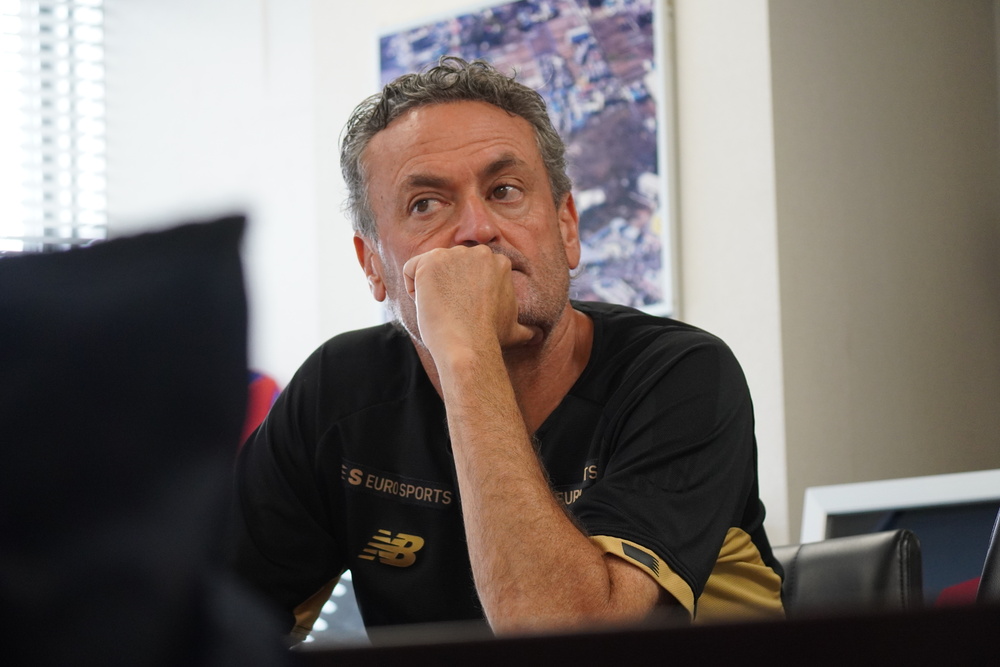
Q: I believe you are also working hard on the club's reform. You mentioned that "we must change the club's mentality," but what kind of mentality do you currently have, and what aspects would you like to change?
A, we must not forget that the club is an organization built by real people. And in order for the team to develop a winner's mentality, everyone involved with the club must also possess it. We must not become complacent. Regardless of the department or division, we must continually demand more from ourselves. A winner's mentality means always being hungry for victory and giving your all to win. This applies to the club's management, the strengthening department, the marketing department, and the public relations team alike. In the case of public relations, we must constantly work to have the club covered by more media and continue efforts to disseminate the club's information. Every department must always aim higher. That is what I believe a winner's mentality in the club is. Even if the playing style changes, without a winner's mentality in the club, great success cannot be achieved. When you visit great clubs in Europe, you can feel the winner's mentality strongly from the moment you step into the club. I would be very happy if Tokyo could acquire that.
Q: With one-third of the season left, how do you want to end this season?
A. I want to continue seeking the same things as before. While being particular about competition, I will continue to make daily efforts and keep growing. I also want to build a solid foundation and connect it to the next season.
Text by Atsushi Iio (Sports Writer)


